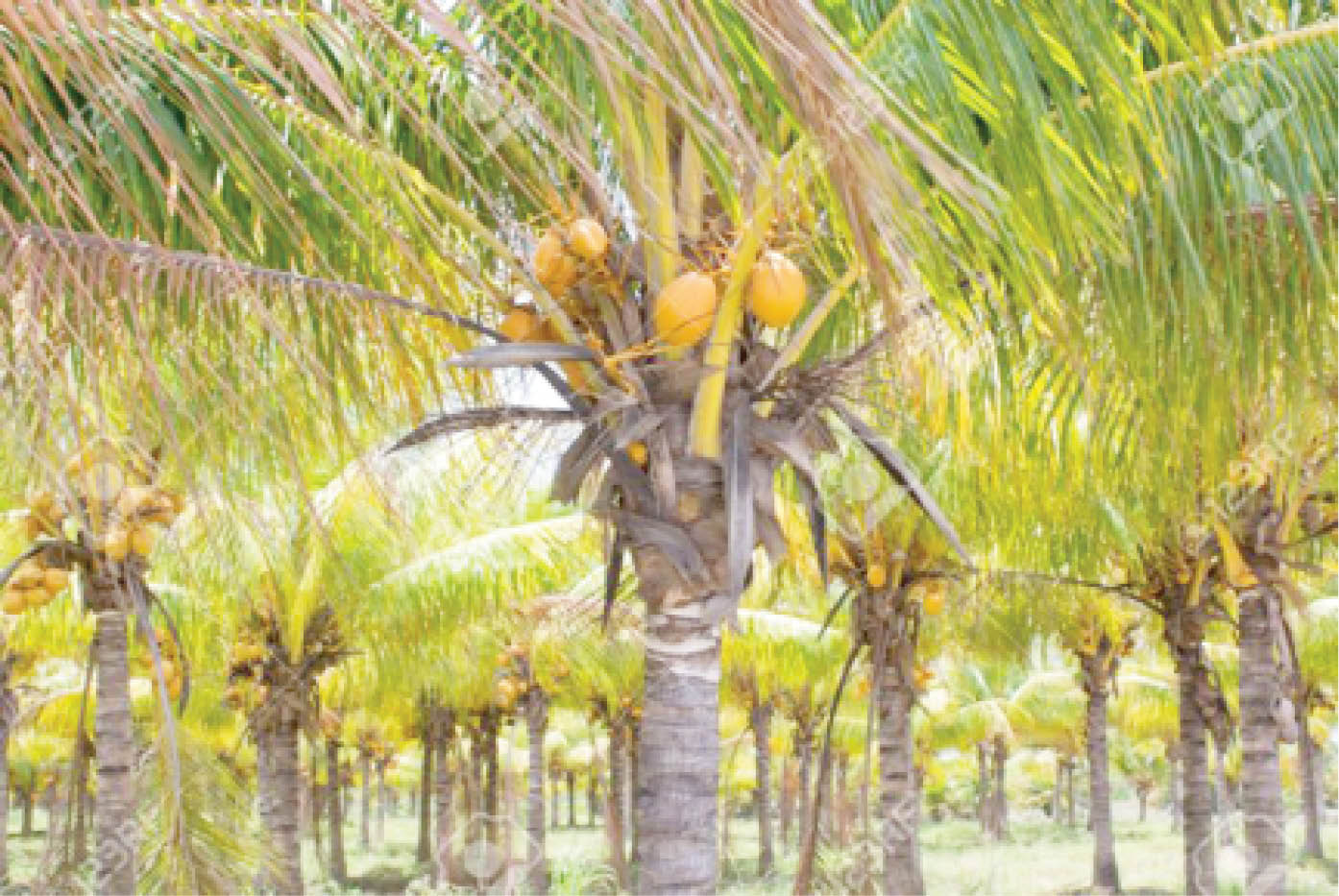…Farmers to address 80% import from Ghana, Togo
Coconut has received renewed attention as the federal government closed its borders to most of the illegal products coming into the country, which were threatening the nation’s economy.
Coconut is one of the massively farmed produce in West African countries that end up in Nigeria, though the country has enormous potentials to grow it.
Dr Nma O. Okoroji, National President of Coconut Producers, Processors and Marketers Association of Nigeria (NACOPPMAN) while speaking recently with Daily Trust in Abuja, opined that the nation seems to have ignored the huge potentials of the coconut economy.
“Thank God for the present closure of the border, because it has made us know that we don’t really have much of the agricultural products in Nigeria.
“Eighty per cent of coconut used in Nigeria is imported from Ghana, Togo and the rest of African countries while we have vast land, we have human resources, we have all it takes to place Nigeria on the world map through coconut farming.
“Hundreds of thousands of hectares in each viable state and of course we have 26 viable states where coconut can effectively grow. With 100,000 hectares of coconut plantation, over 1000 youths will be employed, especially women and the youths and this will help grow our economy.
“Nigeria has been a monolithic economy over the years but coconut is the way because every part of coconut is very useful.
“We have been depending on crude oil over the years; we saw how crude oil price dropped, but the good thing is that you cannot compare the price of a barrel of crude oil to the price of coconut oil.
“Coconut oil is far more expensive and the coconut produce with its robust value chain can transform this economy,” Mrs Okoroji emphasized.
Speaking on how the business of coconut product looks like in terms of money and demand, Dr Okoroji said “If you invest in one hectare on which you plant 197 seedlings and the seedlings multiply, it will produce at least 300.
“If you multiply 300 nuts you will have 59,000 nuts and if you sell that at N100 per nut, it will blow your mind as you are making 80% (about N5, 910,000) of your investment.
“The demand for coconut product is very high because coconut is used in pharmaceuticals, it is used for cosmetics, it is used for household purposes and everybody needs coconut on daily basis.
“I am looking for the day in this country when people will not use cholesterol oil to cook but coconut oil which has zero cholesterol percentage. That will improve the health of the nation. With coconut, I am telling you Nigeria will be rolling in good GDP growth,” she further stated.
Dr Okoroji told Daily Trust that NACOPPMAN was looking at Research and Development in collaboration with IITA and other organisations on the development of early maturing varieties.
“We intend to have Coconut Research Institute of Nigeria. Through the coconut institute, we will be able to develop the hybrid varieties of seedlings that take only three years rooting period, and in the three years rooting period, you can plant potatoes, you can plant pumpkin, you can plant any of the cash crops.
“So while waiting for the three years rooting period you are not regretting your decision to invest.
“There is a hybrid now, so it is no longer like in those days that you have coconut and have to wait for 10 years,” she explained.

 Join Daily Trust WhatsApp Community For Quick Access To News and Happenings Around You.
Join Daily Trust WhatsApp Community For Quick Access To News and Happenings Around You.


